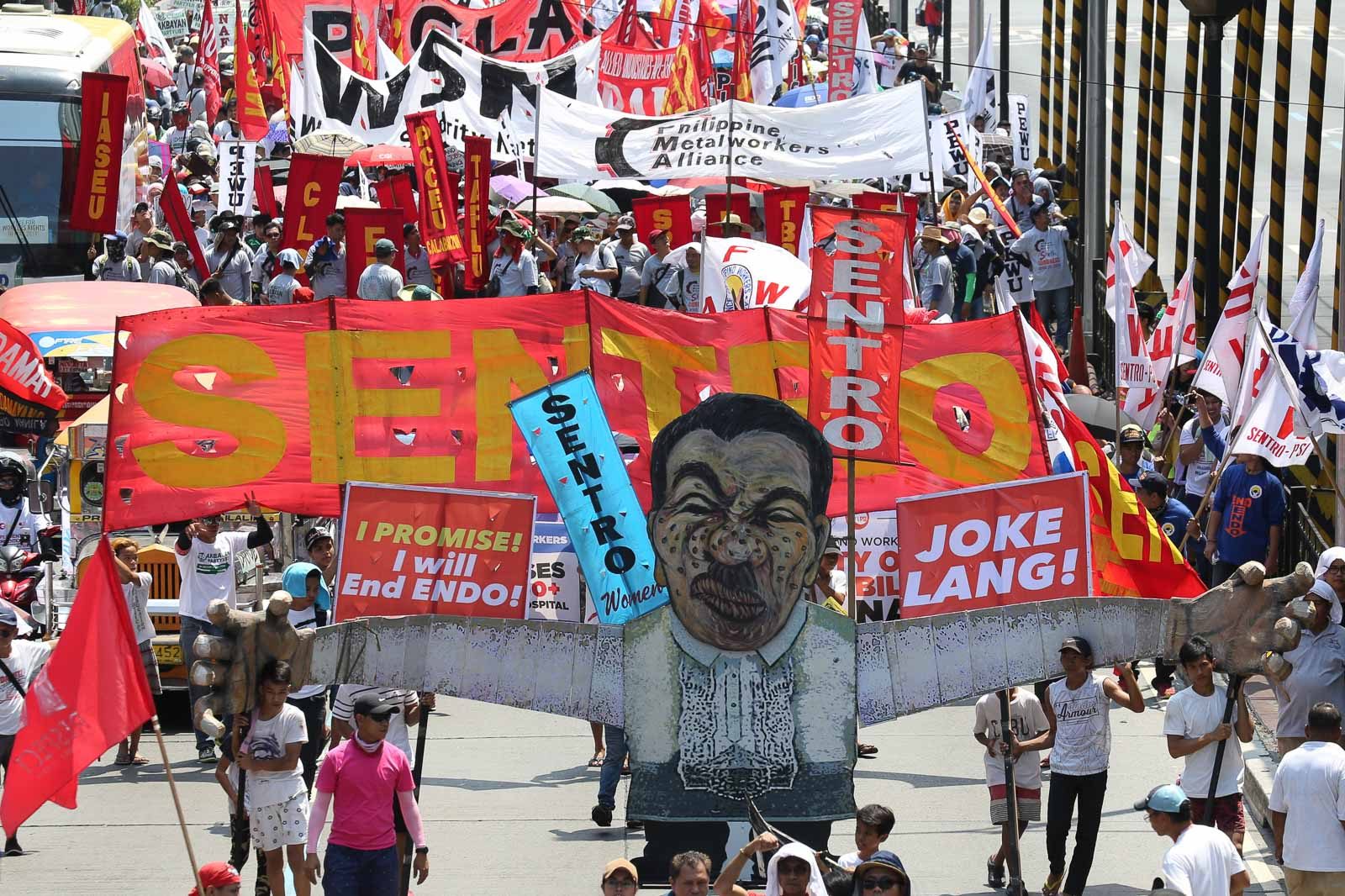SUMMARY
This is AI generated summarization, which may have errors. For context, always refer to the full article.

MANILA, Philippines – Fearing the possible veto of a bill that seeks to amend the existing Labor Code and stop abusive forms of contractualization, labor groups urged President Rodrigo Duterte to sign into law the security of tenure (SOT) bill.
In a press conference on Thursday, July 25, leaders from the Federation of Free Workers (FFW), Partido Manggagawa (PM), and Trade Union Congress of the Philippines (TUCP) reminded Duterte of his campaign promise to stop the end-of-contract scheme or endo, which still continues 3 years into his presidency.
Various labor groups earlier rejected the anti-endo bill, saying that it fails to address key issues. Groups also criticized it as a watered-down version of what workers demanded from Congress.
FFW president Sonny Matula, however, said the SOT bill was better than nothing and that groups could still work to improve the measure further.
“If you’re negative, it (bill) is half-empty, but tripartite leaders are pragmatic. We look at it with the news that this existing bill can protect workers. We cannot wait another 21 years to address the millions who are under abusive contractualization,” Matula said in a mix of English and Filipino.
He added, “Anumang nandiyan ngayon ay puwedeng magamit ng mga manggagawa…. Even though may weakness ang batas, puwedeng magamit ang batas para protektahan ang mga manggagawa.” (We can use what’s there…. Even though it has weaknesses, we can use the law to protect workers.)
TUCP president Raymond Mendoza said a veto of the SOT bill would mean over 20 years of work and negotiations which started in the 12th Congress would go down the drain.
Unlike in 2018, Duterte made no mention of workers or efforts to end contractualization in his State of the Nation Address (SONA) in 2019. In an interview with reporters after his speech, the President did not categorically answer whether or not he would sign the SOT bill, saying instead that he was still “studying it.”
This led groups to worry that Duterte has turned his back on workers. The bill will lapse into law by the end of this week if left unsigned, unless Duterte vetoes it.
Meanwhile, labor groups also hit the government’s economic managers, employers, and foreign chambers calling for a veto of the bill. This came after Socioeconomic Planning Secretary Ernesto Pernia said on Wednesday, July 24, that the proposal needed some tweaking days before it would lapse into law if left unsigned.
“We trust that the President knows that endo is a lifelong poverty trap for our workers, relegating labor to a modern form of slave labor. This bill, though imperfect…can still be a key to bring about the regularization of workers victimized by labor-only contracting,” the groups said.
What’s in the bill? Under the bill, labor-only contracting, a form of illegal employment, exists when:
- the job contractor merely supplies, recruits, and places workers to a contractee
- the workers supplied to a contractee perform tasks or activities that are listed by the industry to be directly related to the core business of the contractee
- the contractee has direct control and supervision of the workers supplied by the contractor
The anti-endo bill also classifies workers under 4 employment types: regular, probationary, project, and seasonal. Project and seasonal workers have the same rights as regular employees, such as payment of minimum wage and social protection benefits.
Violators would face a fine of up to P5 million, with the labor secretary having the power to “preventively or permanently” close the operations of the labor-only contractor.
Before this, Duterte signed an executive order supposedly ending endo, but progressive lawmakers and labor leaders slammed it as “inutile,” as it failed to abolish the practice. (READ: TIMELINE: Duterte’s promise to abolish endo) – Rappler.com
Add a comment
How does this make you feel?
There are no comments yet. Add your comment to start the conversation.